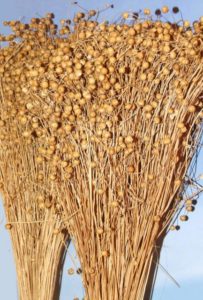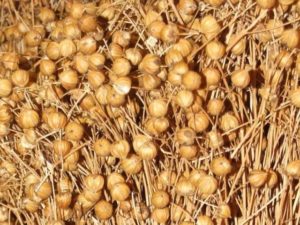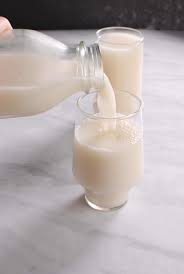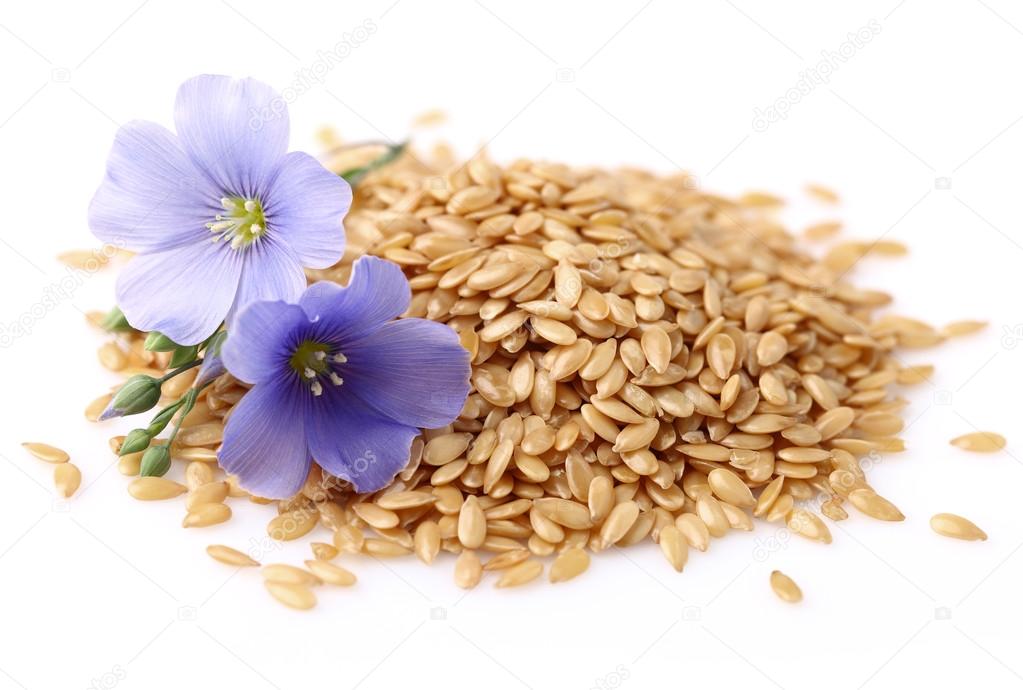Medical Uses of Flax Plant
Four thousand years ago, flax medicinal uses have been very beneficial, especially for the fact that flax soothes the skin and the mucosa. It is one of the plants for the intestine. It plays vital roles on the digestive tract. About 8th century, Charlemagne saw the importance of flax and considered it for his subjects’ health and enacted law and regulations regarding its intake.
Again, at about 15th century A.D., Hildegard vin Bingen relied so much on flax meal especially in hot compresses in treating ailments, both internal and external.
Flax has enormous medicinal uses ranging from skin soothing products for dried skin, eczema, mild burn etc. and also anti-inflammatory properties.
This medicinal plant has been in use for over four thousand years ago where it was cultivated in Mediterranean countries for the production of textile fibers and also a medicinal herb. It is also said that Hippocrates recommended flax as an emollient.

Flax is a herbaceous plant of the Linaceae family which grows from 45 to 80 cm in height. It has an upright stem with elongated narrow leaves. The colors of the flowers are blue, having five petals.
The fruit is a globe-like capsule accommodating ten seeds which are brown in color. The linseed which is the flax seed is the part that is used for medicinal purposes.
READ ALSO: Effects of Fish Oil
Properties and some Indications of Flax
Flax medicinal uses are derived from the seed which contains high amounts of pectin and mucilage. The presence of mucilage and pectin give flax its emollient and laxative properties. There are also mineral salts and fats which have high biological benefits.
The following are its applications and indications.
Duodenitis, Gastritis and Gastro-duodenal ulcer
Here, it should be consumed in a decoction as complement regarding any specific treatment for the above mentioned processes. Flax medicinal uses are seen to have several actions such as presenting anti-inflammatory and emollient effects which help in the regeneration of the digestive mucosa that’s been harmed.
Another benefit amongst flax medicinal uses is that, it lubricates the digestive tract thereby making the feces to become softer. Apart from this great medicinal use, flax helps in regenerating the intestinal flora, fermentation processes and also promotes the regulation of the putrefaction process.
Flax medicinal uses are thus evident since when it comes to cases of intestinal putrefaction, feces tend to lose their putrid odor.
Inflammation of the urinary and respiratory ways
Flax medicinal uses can be applied when there is inflammation of the respiratory ways as well as the urinary, especially cystitis and bronchitis due to soothing and emollient effects it has on the mucosa.

Flax seed which is also known as linseed can be used as a food. This will offer so many beneficial values as it will quench hunger and also offer medicinal benefits. Another amongst flax medicinal uses especially the use of its seed, is quite good for diabetic patients since it is recommended for individuals suffering with diabetes. This is because of its low sugar content and high content in fats and proteins.
YOU MAY LIKE: Negative Effects of Eating Meat
Another medicinal and nutritional value of flax seeds is that it recommended for those who want to gain weight and for those suffering from malnutrition.
As for poultices of linseed flour, it can be applied whenever there’s need for constant heat in case of the following:
- Bronchitis
- Menstrual pain
- Colds
- Chronic aches of the abdomen or near the abdominal region which may be gall bladder or kidney aches.
- Insect bites
- Intestinal spasms
- Abscesses
- Furuncles
On the cases mentioned above, linseed flour have antispasmodic, resolvent, anti-inflammatory and sedative properties or effects aside having the capability to retain heat over a long period of time.
Linseed oil can be used as skin soothing product for mild burns, eczema, dermatosis and dried skin. Hot poultices of linseed flour are also helpful for painful menstruation, kidney or intestinal colic, and bronchitis.
Medicinal Uses of Flaxseed
Flaxseed Tea

Flaxseeds that have never been crushed are soaked in water for about 40 minutes; the seeds are removed as the water is made to be warmed in moderate manner. Flax medicinal uses here indicate its usefulness against asthma, bad cough, dyspnoea and bronchitis.
Flaxseed Flour
Regarding any ailment here, 10 – 15 grams of flaxseed flour are made as paste and honey being added. Then about 25 – 40 grams of the paste has to be swallowed when one has not had any food, probably in the morning. Therefore, it is recommended we consume it in the morning before breakfast.
Here, flax medicinal uses are as follows:
- Fighting against intestinal inflammation and abdominal pains
- It can be applied against haemoptysis, pulmonary tuberculosis and stomach ulcer.
- It is used in disinfecting gastrointestinal tracts.
- Gives strength to the nervous system
Flaxseed Drink

This is prepared by adding a spoonful of the powder (flaxseed) into a glass of water that is quite hot. Then brewed and also got drained. One cup of this should be taken on a daily in order to help out constipation.
SEE ALSO: Health Benefits of Aloe Vera
Preparation of flax medicinal uses
For internal Use
- Cold extract: Allow steeping for about 12 hours a spoonful of flaxseeds in a glass of water. The recommended dose is two or three glasses of this medicinal liquid on a daily.
- Decoction: 30 grams of the flaxseed to be decocted per liter of water. The boiling period should be five minutes. Drink two (2) or three cups every day. You can add honey to sweeten it.
- Seeds: Seeds (whole seeds) can be chewed or taken every 12 hours; One spoonful every 12 hours.
External Use
- Lotion with linseed oil: Lotion combined with linseed oil can be administered directed on the affected area.
- Poultices: linseed flour or ground linseed can be added to boiling water until a thick paste is formed. About 40 to 50 grams of ground linseed (linseed flour) are normally needed for liter of water. To protect the skin from burns, use a cold cloth.
Flex medicinal uses are quite enormous, and here you can get some medicinal values of flaxseed proteins below
- Flax proteins help in lowering cholesterol and this is as a result of their binding acting of the bile acid
- Anti-tumor: This is due to the fact that lysine presence is quite low
- According to ncbi, it fights against food spoilage fungi.
- Anti-diabetic: This is because they help in stimulating insulin secretion.
Warning
It doesn’t take anything for the oil in linseed flour to become rancid thereby producing skin irritation. Therefore, it is better to use recently prepared flour for making poultices.
SEE MORE ARTICLES HERE (BLOG)
Foods that lower high blood pressure quickly

A graduate of Computer Science and Information Management Technology. Diploma – Caregiving, Certificates – Dementia and Diabetes Awareness and Management. A researcher, blogger, songwriter, singer and acoustic guitarist. Born in an environment where natural talents such as healing are imparted at our natural birth. This natural talents of healing is the result of our genetic inheritance and the training from family environment.












